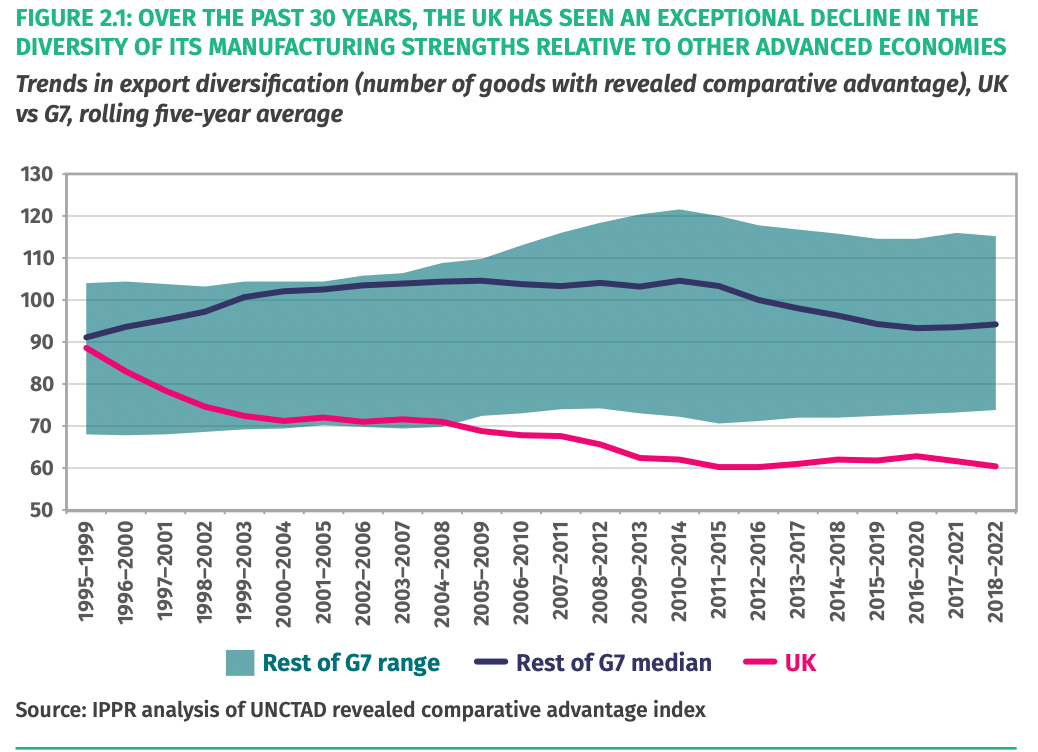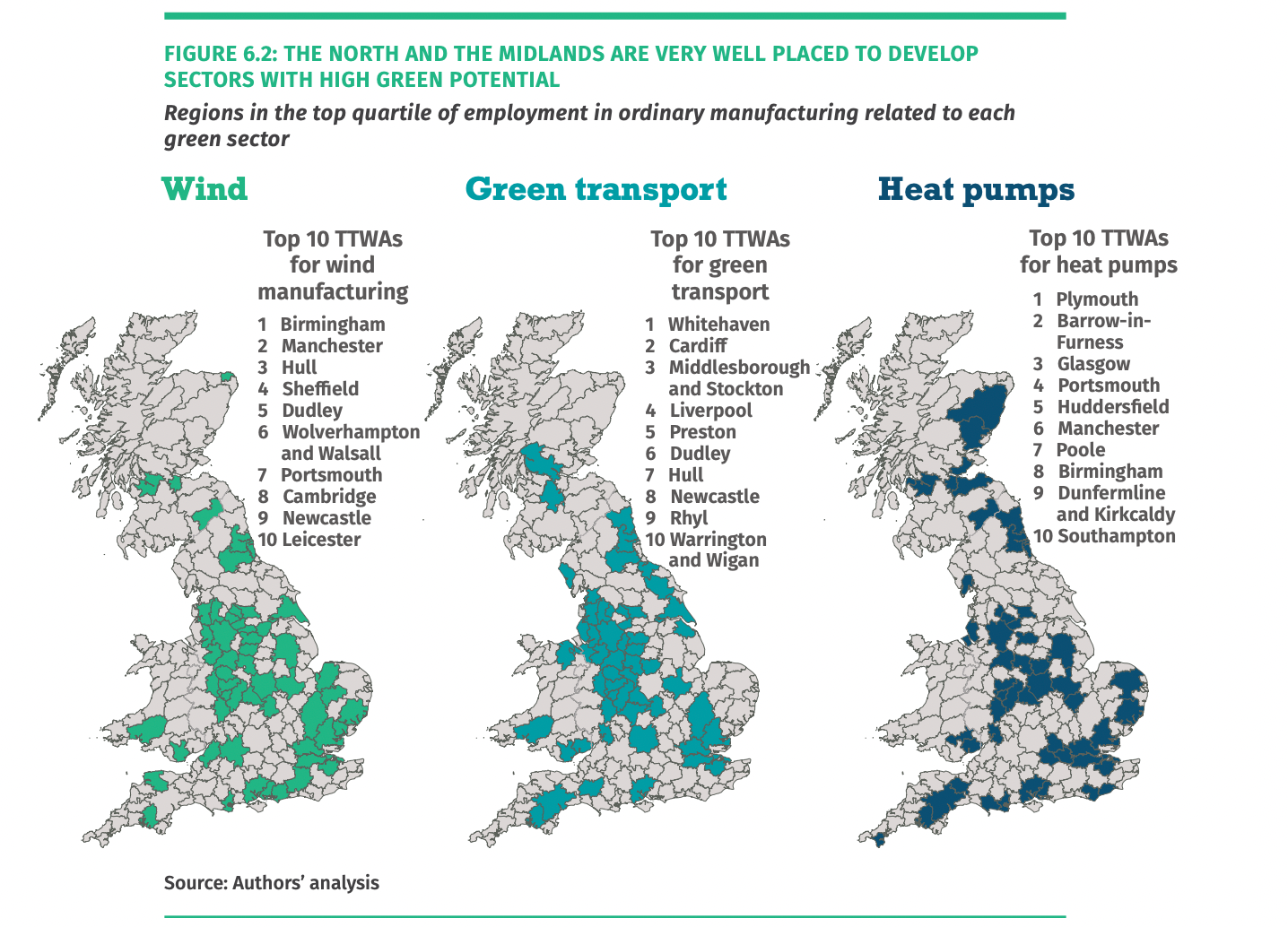Britain has suffered ‘exceptional decline’ in manufacturing - but green economy could spark revival
Dr George Dibb, head of IPPR’s Centre for Economic Justice, says UK must seize ‘growth opportunities of green manufacturing’
Your support helps us to tell the story
From reproductive rights to climate change to Big Tech, The Independent is on the ground when the story is developing. Whether it's investigating the financials of Elon Musk's pro-Trump PAC or producing our latest documentary, 'The A Word', which shines a light on the American women fighting for reproductive rights, we know how important it is to parse out the facts from the messaging.
At such a critical moment in US history, we need reporters on the ground. Your donation allows us to keep sending journalists to speak to both sides of the story.
The Independent is trusted by Americans across the entire political spectrum. And unlike many other quality news outlets, we choose not to lock Americans out of our reporting and analysis with paywalls. We believe quality journalism should be available to everyone, paid for by those who can afford it.
Your support makes all the difference.Britain has suffered an ‘exceptional decline’ in manufacturing strength compared to its international peers over the last 30 years – but the industry could be revived with a focus on the green economy, a new report has found.
Analysis undertaken by the Institute for Public Policy Research (IPPR) revealed that the UK has a competitive advantage in making one in three key products needed for the transition to net zero.
The report says this includes products vital for the electricty grid, renewable energy generation, making electric trains and their parts, heat pump components, and turbines for geothermal or hydro electricity generation.
The think-tank is urging the government to further prioritise specific areas - including manufacturing wind turbines, heat pumps and the electric vehicles of the future, such as zero-emissions planes - to deliver net zero and boost the economy.

According to the analysis, the North and the Midlands are particuarly well suited to develop the country’s focus on wind, heat pumps and green transport.
If this approach is taken the researchers say this could reverse a number of negative trends related to manufacturing in the last few decades.
For example, the UK has over the past 30 years lost a third of its manufacturing strengths compared to other advanced economies such as France or the USA. And Britain’s share of the world’s green product exports has halved since the 1990s.
The report adds more research is needed to understand supply chain relience - specifically solar power - with manufacturing highly concentrated in China.
“This exposes the UK and our allies to geopolitical risks and reduces the resilience of key net zero supply chains in the event of any economic shocks.
“More research into the solar value chain is critical in developing a clear strategy for this crucial source of renewable energy,” the report says.
Industry leaders, including MakeUK and the CBI, have backed the findings of the research and said manufacturing can play a key role “in the greener industries of the future.”
Dr George Dibb, head of IPPR’s Centre for Economic Justice, said: “The UK faces three generational challenges: to deliver net zero, to level up and reinvigorate our economy, and to become more resilient to future shocks. These challenges have a common solution - seizing the growth opportunities of green manufacturing.

“Over the past 30 years we have slipped sharply behind our global competitors in the quantity and kinds of things we actually make. That’s bad for jobs, for living standards, for our security – and for our long-term economic strength as a country.
“Yet UK manufacturers still have a competitive edge in making some of the products vital for a net zero economy, and with the right government support we have the potential to be world-leading in many more. Our report has identified what we should target to develop in the near future; now we need government to adopt a long-term strategy that will lead us along this path.”
Rain Newton-Smith, CEO of the CBI, said: “Green truly is the economic growth opportunity of the 21st century, with our research showing it could deliver as much as £57bn to the UK economy. That’s something we can’t afford to miss out on, and our manufacturing sector is fundamental to helping us secure that prize.
“From electric vehicles to sustainable aviation fuel, turbines to onshore heat pumps, UK companies are already making and innovating for the future, with products and services that will drive the net zero transition at home and around the world.
“The race is now on to build on our expertise in advanced manufacturing and leverage our established supply chains to make the most of the green opportunities on offer. That’s why we need stable regulatory and financial frameworks that support our manufacturers to invest in and grow their operations, with investment incentives and policy certainty at their core.”
Stephen Phipson, CEO of MakeUK said: “Manufacturing has always been a strategically important sector for UK economy and, never more so than now, given the immense societal, political and economic challenges that we face.
“Just as the first industrial revolution provided a step change, the accelerating pace of technological change of the fourth industrial revolution, in particular the drive to net zero, gives us a generational opportunity to do the same now.
“This valuable report highlights to those in power, now and in the future, how manufacturing can play a central role in the greener industries of the future.”

Join our commenting forum
Join thought-provoking conversations, follow other Independent readers and see their replies
Comments